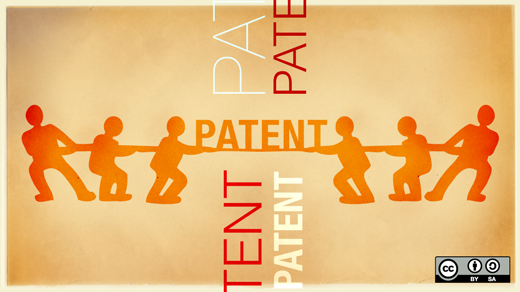Oracle v. Google has all the ingredients of an epic, high-stakes courtroom battle: a damages claim of up to $1 billion over the use of Java in the popular Android operating system, testimony by both Larrys (CEOs Page and Ellison) in the first week alone, and, of course, the disposition of some interesting legal issues, not the least of them whether APIs can be copyrighted.
But, more than all of that, the case serves as an important teaching moment, illustrating much of what doesn’t work in our patent system.
That system is of course enshrined in the U.S. Constitution, which gives Congress the power to "To promote the Progress of Science and useful Arts, by securing for limited Times to ... Inventors the exclusive Right to their ... Discoveries." But when we start talking about software patents, we really only see barriers to innovation, often in the form of expensive litigation and licensing fees. What gives?
For starters, software often does not require the type of heavy investment that should result in a 20-year monopoly. Instead of expensive laboratories or years of testing for FDA approval, for example, you often just need a coder and a computer. Even complex programs don’t require 20 years of exclusivity to recoup their investment. Software patents are often not even necessary for successful businesses: Facebook and, yes, Google — never relied on software patents to grow their early businesses.
Software patents are also notoriously vague and difficult to understand, making it impossible for small inventors to navigate the system without expensive legal help. And that brings us to the most dangerous aspect of software patents: litigation.
It turns out that software patents are nearly five times more likely to be the subject of litigation as other patents. In fact, lawsuits surrounding software patents have more than tripled since 1999, and they have become part of the price of doing business in America. Take Spotify. After realizing much success in Europe, Spotify launched its U.S. product in July, and just weeks later it found itself facing a patent suit.
And it’s not just established companies like Spotify and Google — small start-ups and even individual inventors find themselves on the opposite ends of threats and lawsuits. The patent system is supposed to benefit society and those who create, but instead the real winners in this game are the lawyers.
Perhaps most troubling, the patent system fails to recognize how people create and use technology. Software is fundamentally situated as a building-block technology. You write some code, and then I improve upon it — something the open source community has figured out. Google’s use of Java in its Android OS also demonstrates how innovators create, by making its own product and and incorporating some elements of the Java language (which, incidentally, Java’s creators have a history of supporting). And when those two come together, it results in an incredibly popular product, here the Android OS.
In the fast-changing world of technology, where a kid coding in his basement can write a program that can change the world, it’s important that this ability to use and share is protected. It’s also worth noting that if Oracle wins on its copyright claims, whole programming languages could become off limits, a dangerous proposition indeed.
Oracle’s attempts to shut this down, whether by patents or copyrights, are just the last in a depressingly long line of rights holders attempting to cut off important and popular downstream uses of their products, even when those uses may be legal (such as a fair use) or beneficial to society at large.
This is not to say that intellectual property rights shouldn’t exist, or that owners of those rights should not be able to enforce them. However, it’s time to rethink our policies on software patents, and, depending on what happens in Oracle v. Google, the extent to which we allow copyright claims to cover the functional programming language that builds the backbone of much of the technology we use today.
Patent litigation has become little more than a tax on innovation that drives companies from the U.S. market and discourages investment in the next Facebook or tomorrow’s Twitter. In this case alone, Google and Oracle each will likely spend tens of millions of dollars (and that’s before any potential damages are levied) — money that could and should be used for further innovation and growth.
Congress recently passed patent reform legislation that wholly lacked provisions to curb the pernicious effect posed by exploding patent litigation, which harms innovation and our recovering economy. Oracle v. Google is unfortunately not the exception, but the norm. A total reset on software patents is long overdue.






50 Comments